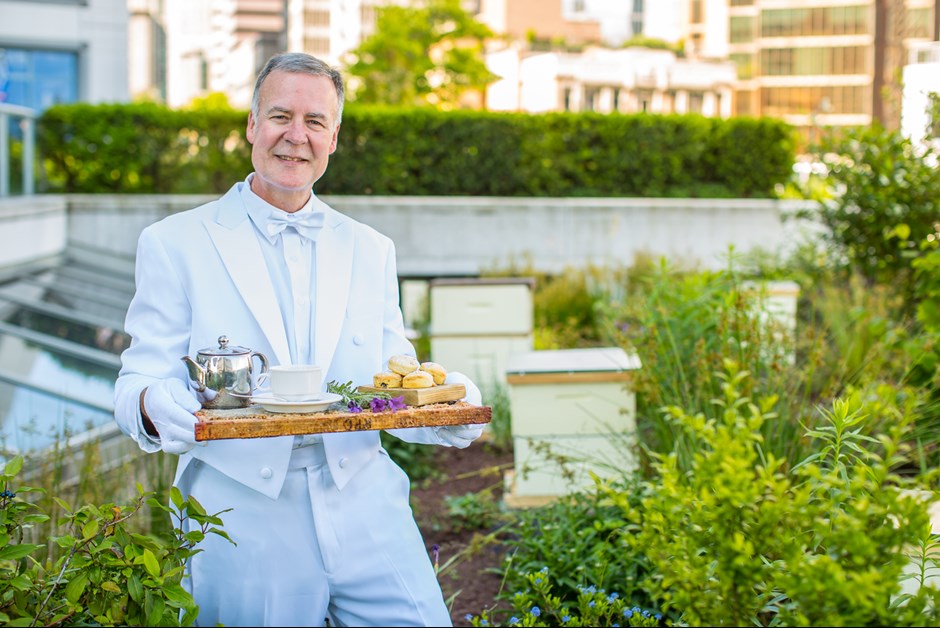The Buzz on Bees with Bee Butler Michael King ~ May 30th
Learn more about Fairmont Waterfront or make a booking.
It’s been one week since our honeybees arrived on site and today the Honeybee centres’ Head Beekeeper, John Gibeau, visited us to inspect how the hives are doing. He was very pleased to see that each hive appears to be doing very well on first viewing with good honey production already begun and the first ‘brood” (eggs and larva) having hatched out and doing very well.
Newly hatched worker bees (females) will remain in the hive for the first 10-12 days performing tasks such as nursing and feeding the young larva, tending to the queen, cleaning and repairing old cells and remaking them ready for the next ‘head in the bed’ or for the next batch of nectar brought in by the more mature workers who are older and who have been out in the big wide world collecting nectar and pollen !
What about the male ‘drone’ bees you may ask. What are they doing ? Actually not much ! They may leave the hive periodically to see if they can find a queen to mate with. If they succeed they will immediately die and fall to earth ! Otherwise they will remain in the hive being fed by the females and basically hanging around watching events around them ! They may however assist with regulating the hive temperatures either by trembling to generate body heat if the hive is too cold or by flapping their wings in unison with the other bees if the hive gets too hot.
By day 12 onwards the young workers will take on their next career move and start flying out themselves to begin the work of ‘foraging’ or collecting nectar and pollen to bring to the hive where they will regurgitate it from their stomach (they have 2 of them) leaving it to be distributed into cells by other younger workers.
The next several days are set to see temperatures rising and we can be sure that bee activity will also intensify not just in our hives but everywhere where hives can be found. The spring flowers that bees may be collecting from could include dandelion, apple, rosemary, thyme, heather, Spanish lavender, lupins, foxgloves and oxeye daisies.
And our Mason bees ? They are still engaged in laying eggs in the tube filled nesting box which they will complete within the next few weeks before completing their life cycle. Then we will wait until next spring for their young to emerge into the world and begin the job of pollinating all over again !
Til the next update ………….
Learn more about our bees and #BeeButler at: http://bit.ly/beebutler
